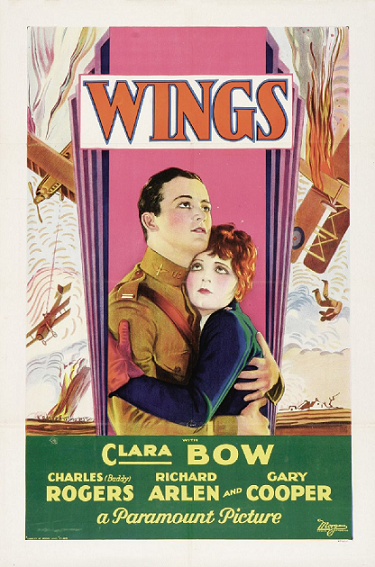
Starring: Janet Gaynor, Charles Farrell
Director: Frank Borzage
Summary: A street cleaner saves a young woman’s life, and the pair slowly fall in love until war intervenes
Other nominations: Director for a Dramatic Picture*, Actress (Gaynor)*, Adapted Story*, Art Direction
Positives
-Very strong acting throughout, especially from Gaynor and Farrell who have excellent chemistry together; there’s a reason why the two would go on to co-star in 10 more films with each other. Gaynor won the first Best Actress Oscar partly because of 7th Heaven (the first Best Actor/Actress Oscars were given as a result of all movies the person was in in the given year-7th Heaven was the biggest hit, but she was also in the now better-remembered Sunrise: A Song of Two Humans as well as Street Angel that same year)
-The characters were good and felt organic and well fleshed out.
Negatives
-While the story structure works, the nuts and bolts of the plot have major problems. A couple of major plot points get introduced and then later get resolved with no real effort or drama in the most anti-climactic of fashion, there are pacing issues and the ending blindsided me with how inexplicable it was. Pretty much all the problems are with the screenplay (which somehow won the Oscar for Adapted Screenplay), but there are enough fundamental problems that crop up starting around the 45 minute mark that it really hurts the movie
Overall
7th Heaven is a well-acted film, especially for its time, and the first 30 minutes are great; after that however, the film feels like rushing from one plot point to the other with consistently poor results. It’s a pretty good movie that feels like it could have been great with a better screenplay.
Rating: C+


